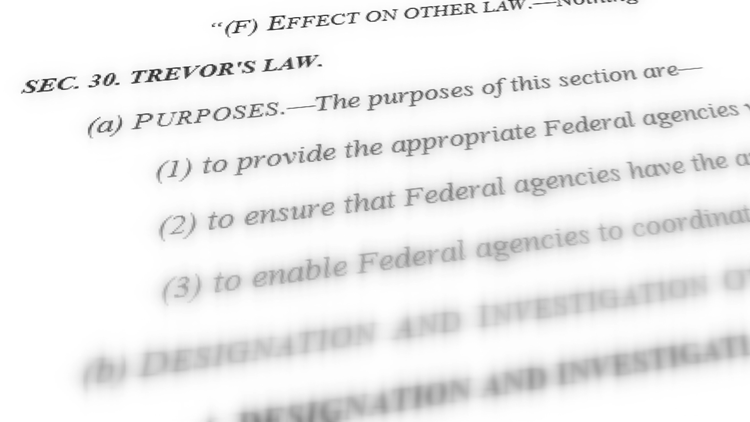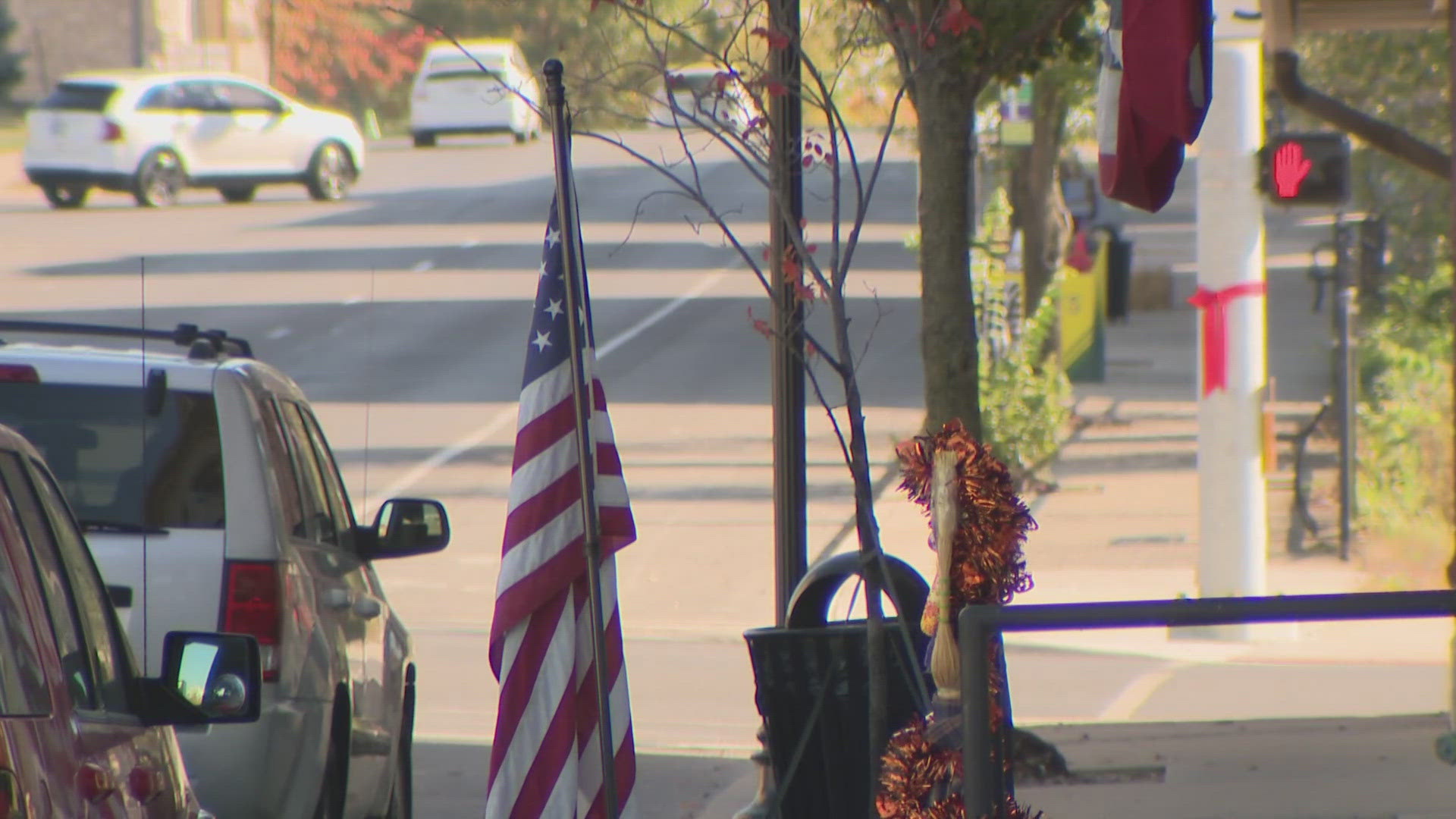Big changes are on the way to help report, track and investigate cancer clusters in Indiana and across the country.
13 Investigates first told you about gaps in the state's registry and why a group of Johnson County mothers joined a national fight for sick kids. Now a combination of historic new laws will address chemicals, cancer and the safety of our children going forward.
It was a victory lap for Johnson County kids fighting cancer when the 500 Festival Parade stepped off with 14-year-old Emma Stumpf as its grand marshal. Now those same Johnson County families are celebrating a parade of change from Indiana to Washington, D.C. where a new historic federal law will regulate chemicals in and near homes, schools and in new products.
"It's been an answer to prayer for us," said Patty Meade, whose son Evan was among the first Johnson County kids to get diagnosed with cancer.
Evan is now cancer-free, but his mother is one of the voices still pushing for change when it comes to investigating pediatric cancer.
"We are putting a law in place that is going to protect American families, protect children with regard to chemicals," said Senator Tom Udall, D-N.M., in announcing the nation's first major overhaul of the Toxic Substances Control Act in 40 years.
Included in that overhaul are new guidelines for investigating cancer clusters.
"We're so excited," said Stacy Davidson, the mother who reached out to 13 Investigates last fall to ask for help in bringing more attention to the high incidence rate of pediatric cancer in Johnson County. 13 Investigates documented 30 children diagnosed with blood and brain cancers all living within a 25-miles radius in Johnson County - many of them living in or with close ties to the city of Franklin.
"There's so many kids and the rise of pediatric cancer is crazy right now," Davidson said, underscoring the importance of the new screening standards passed by Congress.
"We fought. We got this into this law, 'Trevor's Law'," said Sen. Barbara Boxer, D-Calif., during a news conference outside of the Senate.
13 Investigates first told you about Trevor's law in March. Childhood cancer survivor Trevor Schaefer of Idaho was on a mission to get Congress to change the arbitrary process of investigating suspected cancer clusters. When he and other kids in his community got sick, health officials there called it insignificant.
When Trevor saw what 13 Investigates uncovered, he invited the Johnson County mothers who were speaking out to help him push for change.
"We're just glad to be a part of it," said Meade.
Under Trevor's Law, the Department of Health & Human Services would create guidelines to investigate potential cancer clusters, including the time frame over which the cancers occurred.
In the Johnson County cases, State Health officials spread out their analysis of sick kids over 13 years instead of focusing on the years in question. While the National Cancer Institute showed pediatric cancer rates in Johnson County higher than the state and national averages, the State Health Department reported a lower rate.
"They didn't have to follow any protocol. They didn't have to provide answers and they didn't have to look deeper into what we are seeing," Meade explained.
Trevor's Law will now force all states to categorize data the same way and will help funnel the information into a national database.
Congressman Andre Carson pledged his support of Trevor's Law months ago. Both Indiana Senators and the state's entire congressional delegation also voted yes to the Chemical Safety Act and Trevor's Law.
At the same time, state lawmakers decided to take some action of their own.
13 Investigates discovered a two year gap in the State's cancer registry. Under State law, doctors are required to report new cancer diagnoses each year, but State Health investigators could not use those reports to immediately identify or investigate current spikes in diagnoses or certain types of cancers. Investigations could only be triggered by public requests.
In July, that will change. Indiana lawmakers voted to explicitly allow the agency to use its own registry for cancer investigations.
"We're going to know there's a problem quicker," said Davidson looking ahead at the possible benefits of the change.
"Along with Trevor's Law, this is huge," Meade added.
For a group of mothers desperate for answers, the laws are victories in a fight for better cancer investigations.
"Absolutely, we deserve that. Our kids deserve that. It's definitely a step in the right direction," Davidson said with a satisfied smile.
"We told you we would be back. We're back, and it's time," concluded Meade, who says the group plans to ask the State Department of Health to conduct a more thorough investigation in Johnson County under the new guidelines.
The State Department of Health declined to comment on the federal legislation and how it will change the course of the agency's investigations.
The Frank Lautenberg Chemical Safety Act for the 21st Century was started by the late New Jersey senator when he asked 12 Democrats and 12 Republicans to sit down and get to work. What followed was a unanimous vote in the Senate and overwhelming support in the House with just 12 members of Congress voting against it.
CONTINUING COVERAGE
Johnson County moms of children with cancer push for change in Congress (March 3)
Franklin families discover girls diagnosed with cancer lived in same apartment (Dec. 3, 2015)
State health leaders: No cancer cluster in Johnson County (Nov. 30, 2015)
13 Investigates identifies more cancer cases in Johnson County (Nov. 19, 2015)
13 Investigates: Childhood cancer rates in Johnson County (Nov. 16, 2015)
Johnson County parents want answers in childhood cancer cases (Nov. 13, 2015)



